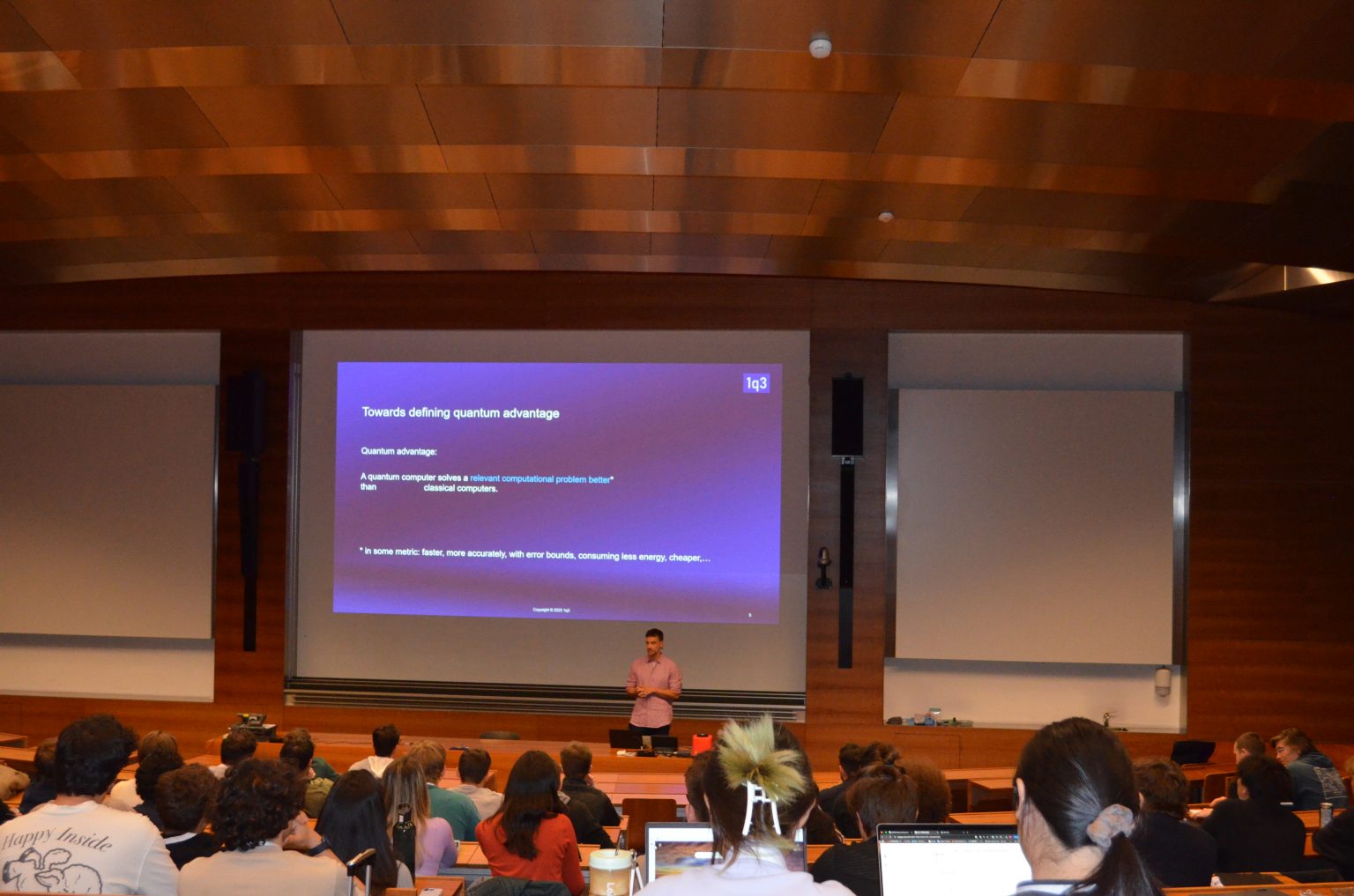Exploring the potential of quantum computing at ETH Quantum Hackathon
19th May 2025
Article by Alexia Yiannouli

From 9-11 May, the ETH Zurich Quantum Hackathon took place, with over 100 students from diverse academic backgrounds and institutions around the world taking part. Over the weekend, students worked together to tackle hardware and software challenges of quantum science.
Before the hackathon kicked off, Philipp Kammerlander, Applications Expert at the Open Quantum Institute (OQI), gave a talk on the concept of quantum advantage–the idea that quantum computers could be used to solve problems beyond what is possible with classical computers. Philipp critically evaluated the recent claims of quantum advantage and explored the surrounding scepticisms.
Philipp also addressed an important question: how should we use quantum computers for societal benefit? Philipp emphasised the need to direct quantum innovation towards developing applications that create meaningful and equitable impact. He reinforced OQI’s mission of promoting equitable and inclusive access to quantum computing and showcased our work towards developing quantum computing applications to accelerate the achievement of the UN Sustainable Development Goals (SDGs) and address real-world global challenges.
At OQI, we are continuing to foster these important discussions, working towards shaping an inclusive future where quantum computing can be responsibly and equitably developed.
Find out more about our portfolio of SDG-focused use cases.
